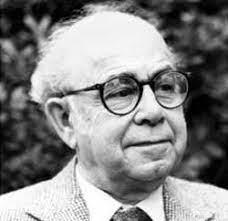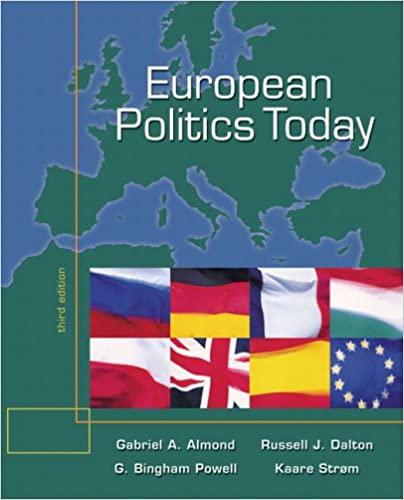
Gabriel A. Almond
Almond was born on January 12, 1911, in Rock Island, Illinois, the son of Russian-Jewish and Ukrainian-Jewish immigrants, raised "in a strict orthodox Jewish home."[1] He attended the University of Chicago, both as an undergraduate and as a graduate student, and worked with Harold Lasswell. Almond completed his Doctor of Philosophy degree in 1938, but his doctoral dissertation, Plutocracy and Politics in New York City, was not published until 1998, because it included unflattering references to John D. Rockefeller, a benefactor of the University of Chicago.
Almond taught at Brooklyn College (now the City University of New York) from 1939 to 1942. With US entry into World War II, Almond joined the Office of War Information, analyzing enemy propaganda, and becoming head of its Enemy Information Section. After the war, Almond worked for the US Strategic Bombing Survey in post-war Germany.
Almond returned to academic life in 1947 and taught at Yale University where he was part of their Institute of International Studies until 1951, when he was part of a group that left for Princeton University and founded its Center of International Studies.[2] He subsequently returned to Yale in 1959, then went to Stanford University in 1963, where he remained until his retirement in 1993. He was elected a Fellow of the American Academy of Arts and Sciences in 1961.[3] He was chair of the political science department at Stanford from 1964 to 1969 and spent time as a visiting professor at the University of Tokyo, the University of Belo Horizonte, and the Taras Shevchenko National University of Kyiv. Although Almond retired in 1976 and became an emeritus professor at Stanford, he continued to write and teach until his death.
Almond chaired the Social Science Research Council's Committee on Comparative Politics for many years and was president of the American Political Science Association (APSA) for 1965–1966. In 1981, he received APSA's James Madison Award, which is given to a political scientist who has made a "distinguished scholarly contribution" during his or her career. He was also the first recipient of the Karl Deutsch Award[4] of the International Political Science Association in 1997. Almond died on December 25, 2002, in Pacific Grove, California, aged 91.
ავტორის წიგნები
-
European Politics Today | Gabriel A. Almond
The first comprehensive survey to include Western and Eastern European nations and the European Union, European Politics Today is the broadest available examination of Europes diverse political systems. Written by leading comparativists and area studies experts, this text introduces key concepts about political institutions, culture, and policy and follows them in seven authoritative country studies, which facilitates the comparison of political experience across the region. European Politics Todays innovative combination of theory and cases ensures that students explore individual countries in-depth and consider the issues that affect all of Europe.
15.00 ₾

